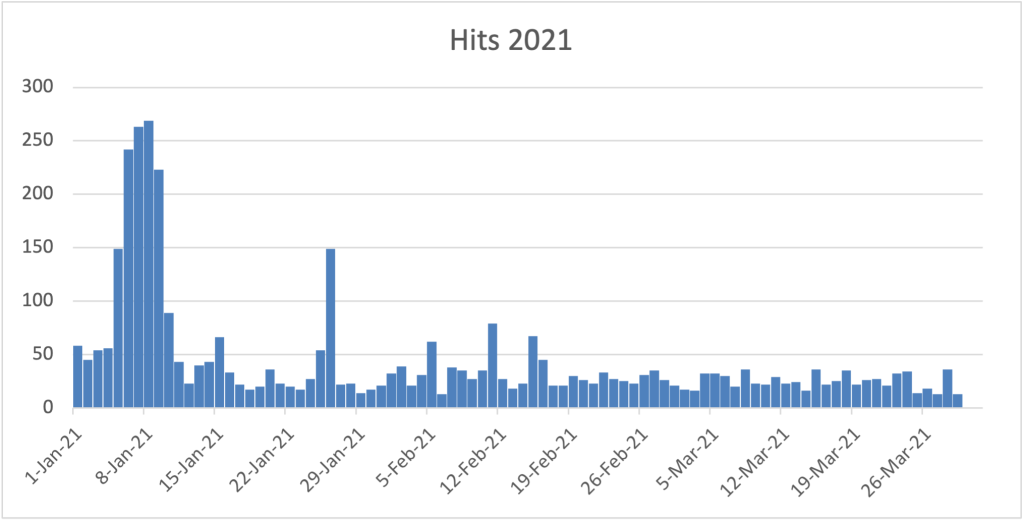A Thousand Ships by Natalie Haynes
This is yet another retelling of the Trojan War and aftermath and other classical stories, with twenty first century interpretations. Homer’s original stories were the epitome of pro-war propaganda, but these days we’re not so enthusiastic about warfare, violence, vengeance, and destruction.
I gather that the author does a bit of comedy. This book is mostly serious, and dreadfully sad in a lot of places. The Trojan War as recounted in the stories was horrible and merciless and pointless. And it was notably horrible for non-combatants, women and children.
Here, Haynes tells the story of the Trojan War and related events from the point of view of the women involved.
Calliope (muse of poetry) over Homer’s shoulder:
“There are so many ways of telling a war”
“[T]his is the women’s war, just as much as it is the men’s” (p. 176)
The events are mostly familiar to us, but even where women are found in the original texts, their perspectives are generally untold or told from the men’s perspective.
I must say that this war and everything are alien to us now. Why would people behave this way? What could possibly have motivated such a long and pointless siege? And, for that matter, what could have motivated Paris’ alleged seduction of Helen, and why would his family and city put up with him, and defend his idiot fling?
And, needless to say, all the slaughter of innocents, bystanders, and even your own family is beyond our understanding or sympathy. “The Gods made me do it” is not considered a valid reason for theft, murder, rape, looting, or genocide.
Much of this book follows the fate of the women on all sides. Wives made widows, girls raped and slaughtered, the surviving Trojan women enslaved, and even the long suffering wives of the victorious Greeks. It’s ugly and nightmarish to us, no less because we can see it coming, know what will happen, and we can’t stop it. This aspect of the story is certainly not something to brag about as the foundation of Western Civilization.
Where did this insane war even come from? Haynes unwinds the tale of how it all started, back to the judgement of Paris and farther. The incident with the three goddesses and the golden apple is hilarious, but, Haynes makes clear, doesn’t really explain anything. So, we must also learn about Paris’s childhood and entry into the story (why did he abandoned a wife to go fetch Helen?).
To really understand, we need to know the real origin of the Apple of Discord. And there we get Haynes’ version of the ultimate source of the war, which is certainly a twenty first century twist on the story!
One of the best parts of the story, and the funniest adn most human to our twenty first century eyes, are Penelope’s love letters to Odysseus. She recounts the tales she is hearing of her husband’s journey home, with a skeptical and knowing ear.
A twenty year epic road trip? Encountering cannibals and monsters? Dallying with sorceresses and nymphs (for about seven of the ten year “adventure”)? Descending into Hades? Wandering everywhere except home to his wife?
Improbable for any man, but, Penelope grants, all too likely for Odysseus.
Penelope writes to Odysseus at one point, not know where he is or if he is alive or dead. Hearing a poet sing of yet another highly improbably (and imprudent) adventure,
“[Y]ou are wedded to fame, more than you were ever wedded to me[….] Why would you remain [on Circe’s island] when you could instead sail past the Sirens? Always one for an adventure, of course. An adventure which brings you no closer to Ithaca. No man had heard the sound of the Sirens and lived to tell of it. So of course you have to.” (p. 254)
But Odysseus is truly clever and smart, and he really does love Penelope, even if he somehow doesn’t see a need to come home to her. And it seems he understands how she sees him.
Hecabe: “Your wife must be a patient woman”
Odysseus: “You have no idea.” (p 195)
I have to say, of all the people in this story, I’d most like to have dinner with Odysseus and Penelope! What a pair!
As Madeline Miller remarked, It takes guts to “reinterpret” the most famous stories in the world.
Is this a “women’s version” of this story?
Is this an “anti-war version”?
Yes to both.
But, I would say this version honors the original versions of the story, although it certainly doesn’t honor the crazy gods or the insanity of the warrior culture of that time.
And anyway, who says we don’t have the right to our own interpretation of this saga?
Well done, I say.
- Natalie Haynes, A Thousand Ships, New York, HarperCollins, 2021.
Sunday Book Reviews

